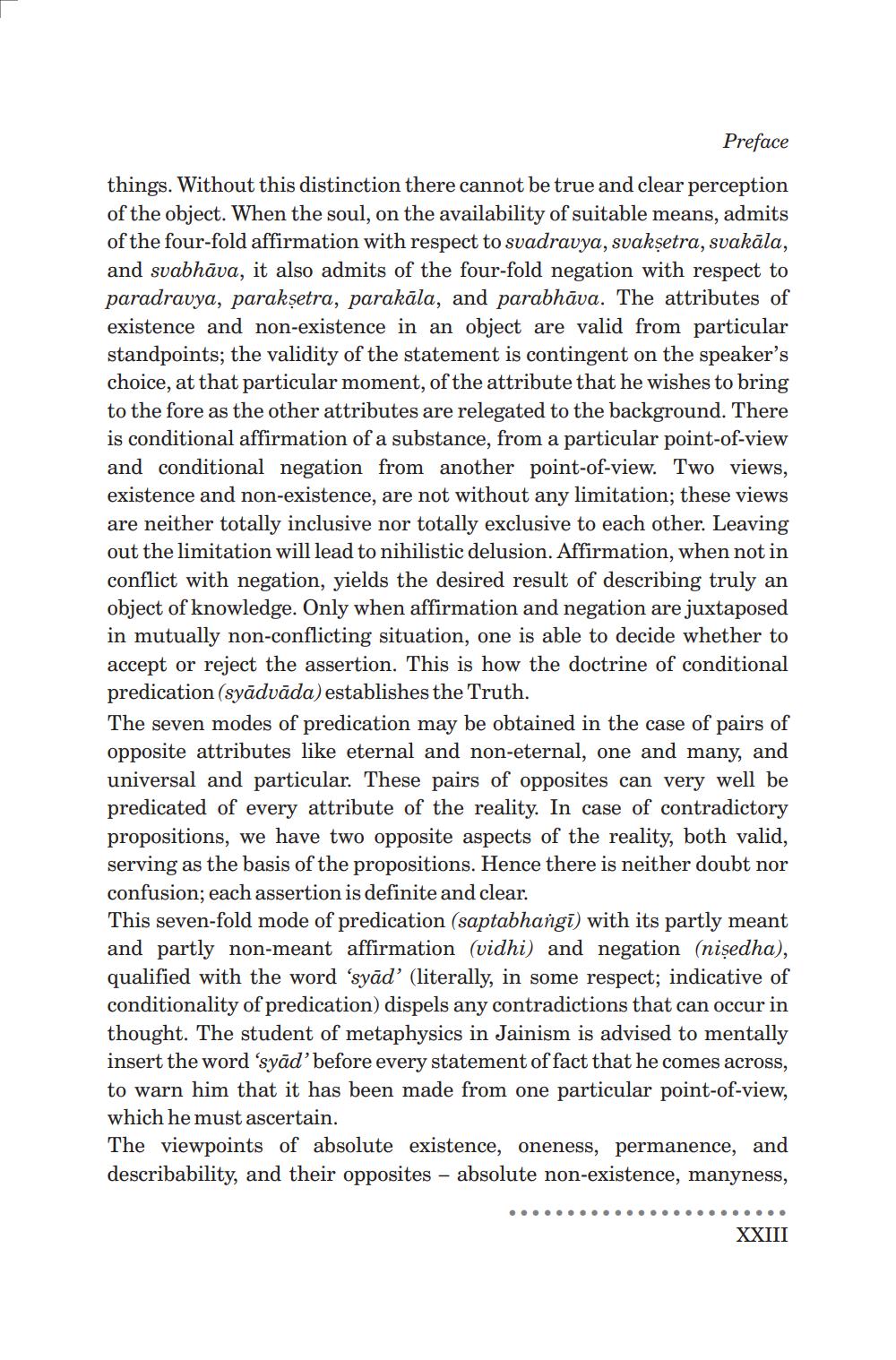________________ Preface things. Without this distinction there cannot be true and clear perception of the object. When the soul, on the availability of suitable means, admits of the four-fold affirmation with respect to svadravya, suaksetra, svakala, and svabhava, it also admits of the four-fold negation with respect to paradravya, paraksetra, parakala, and parabhava. The attributes of existence and non-existence in an object are valid from particular standpoints; the validity of the statement is contingent on the speaker's choice, at that particular moment, of the attribute that he wishes to bring to the fore as the other attributes are relegated to the background. There is conditional affirmation of a substance, from a particular point-of-view and conditional negation from another point-of-view. Two views, existence and non-existence, are not without any limitation; these views are neither totally inclusive nor totally exclusive to each other. Leaving out the limitation will lead to nihilistic delusion. Affirmation, when not in conflict with negation, yields the desired result of describing truly an object of knowledge. Only when affirmation and negation are juxtaposed in mutually non-conflicting situation, one is able to decide whether to accept or reject the assertion. This is how the doctrine of conditional predication (syadvada) establishes the Truth. The seven modes of predication may be obtained in the case of pairs of opposite attributes like eternal and non-eternal, one and many, and universal and particular. These pairs of opposites can very well be licated of every attribute of the reality. In case of contradictory propositions, we have two opposite aspects of the reality, both valid, serving as the basis of the propositions. Hence there is neither doubt nor confusion; each assertion is definite and clear. This seven-fold mode of predication (saptabhangi) with its partly meant and partly non-meant affirmation (vidhi) and negation (nisedha), qualified with the word 'syad' (literally, in some respect; indicative of conditionality of predication) dispels any contradictions that can occur in thought. The student of metaphysics in Jainism is advised to mentally insert the word 'syad before every statement of fact that he comes across, to warn him that it has been made from one particular point-of-view, which he must ascertain. viewpoints of absolute existence, oneness, permanence, and describability, and their opposites - absolute non-existence, manyness, . . . . . . XXIII




